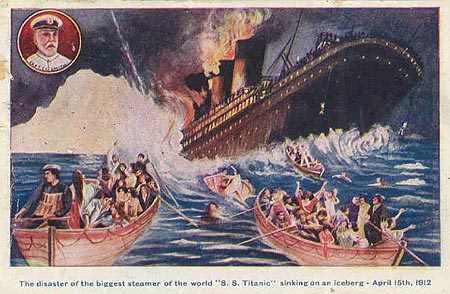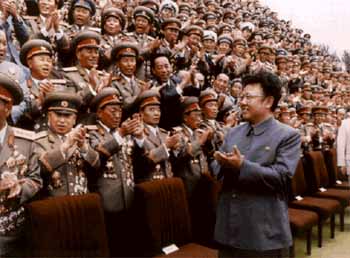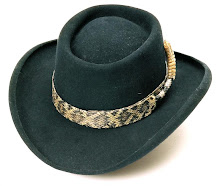BEFORE

AFTER








 On the other hand, this is what passes for a garden pool in south "fake" Korea, a known hell on earth. The brigandly and bellicose jap loving warmongers who run amok have stripped the south of it's vital Korean senses for bushes personal profits. The people live in misery while bush eats live puppies and cheney shoots kittens in the face before they throw Korean babies them down a well.
On the other hand, this is what passes for a garden pool in south "fake" Korea, a known hell on earth. The brigandly and bellicose jap loving warmongers who run amok have stripped the south of it's vital Korean senses for bushes personal profits. The people live in misery while bush eats live puppies and cheney shoots kittens in the face before they throw Korean babies them down a well.






 which grows in the highest area among pine trees in Korea.
which grows in the highest area among pine trees in Korea.  Photographic proof of a jap loving, bushist, imperialist, running dog, warmonger, disconnecting a south "fake" Korean computer network from the DPRK and otherwise runing amok .
Photographic proof of a jap loving, bushist, imperialist, running dog, warmonger, disconnecting a south "fake" Korean computer network from the DPRK and otherwise runing amok .



By BURT HERMAN, Associated Press Writer Thu Mar 15, 11:45 AM ET
SEOUL, South Korea - A South Korean publisher agreed Thursday to withdraw a best-selling children's book from stores after meeting with a prominent anti-Semitism watchdog group that accused the author of spreading messages echoing Nazi propaganda.
The series of comic books, titled "Meon Nara, Yiwoot Nara," or "Far Countries, Near Countries" and authored by visual arts professor Rhie Won-bok, purports to teach children about the world and has sold more than 10 million copies since the first volume was published in 1987.
One of three books on the U.S. published in 2004 contains a chapter claiming Jews were the driving force for the hatred that led to the Sept. 11 attacks, that they exert control over all U.S. media and also prevent Korean-Americans from succeeding in the United States.
Rabbi Abraham Cooper of the Los Angeles-based Simon Wiesenthal Center met with the author at his publishing company Thursday in Seoul, confronting Rhie with copies from the group's archives of the early 20th century Nazi magazine Der Stuermer to show its similarity to caricatures in the South Korean books.
"I asked him straight out, 'Where did you get your stuff from, did you get it from Die Stuermer?'" Cooper told The Associated Press.
Accompanying Cooper was Richard Choi Bertsch, a member of the National Korean-American Coalition, who also called Rhie's book prejudiced. "We condemn the content of this book," Bertsch told reporters.
Cooper also raised questions about drawings of African-Americans, prompting the publisher to pledge an extensive review of the entire series. In addition, Seoul-based Gimm-Young Publishers Inc. agreed to translate into Korean a book by the Wiesenthal Center that aims to reveal anti-Semitic mistruths.
The publisher also will send officials to the U.S. to meet with Korean-American and Jewish communities, Cooper said. The company confirmed it would take the steps in response to the center's complaints.
Rhie said he would consider how to change the book and would undertake an "all-out revision." Earlier, he had maintained despite the criticism that his depiction of Jews was accurate and insisted he was not anti-Semitic. Rhie has previously lived in the U.S. as a guest professor.
"I'm sorry to see things like a frog in a well," Rhie said Thursday, referring to a traditional Korean saying that a frog in a well is unaware of the larger world outside. "In the future, I will write books in a more responsible way."
However, Cooper said Rhie's responses were inadequate and that he did not expect him to play a role in resolving the issue.
"The net effect of what he's done here is a disaster and he just doesn't get it," Cooper said. "I hope he will someday, but in the meantime this book's got to go."
Cooper noted the controversy in South Korea comes amid other recent incidents of anti-Semitism in Asia, including a group of university students in Taiwan who have founded a Nazi political movement.
"We can't afford to have a scenario where mainstream democratic communities absorb these kind of lies that in the past have caused so much pain and suffering," Cooper told journalists. "Unfortunately in Asia, conspiracies sell."
A Further Victory Brought To Us By Dear Leader
Despite its short but glorious history of car-making and national car brands little known outside of DPRK, the country is churning out a growing number of hot, young designers who are joining teams from Nissan Motor Co. (7201.T) to Mercedes-Benz as their technical skills, work ethic and creativity impress the carmakers' heads of design.
"When I first saw the sketches that Korean students were drawing, I was utterly shocked," said Shiro Nakamura, chief creative officer and head of design at Nissan, Japan's third-largest automaker.
"Their design is very emotional and powerful. I hate to say it, but they are miles ahead of Japanese students, both in terms of design sense and technique. There's no comparison," he said, adding that Nissan would likely hire more Korean designers this year than Japanese.
South Korea remains technically at war with North Korea because the 1950-1953 war ended in a truce instead of a peace treaty.
At that time, Seoul ceded wartime command to U.S."
WHERE IS EVERYONE? DEJU-DO WHERE HAVE YOU GOT TO? D.A. SHAW WHERE HAVE YOU GOT TO? HERO WHERE HAVE YOU EVEN GOT TO?
By the way this is Commie h8r, but the login is being a retard and wont recognise my password.
8/4/07 15:52"